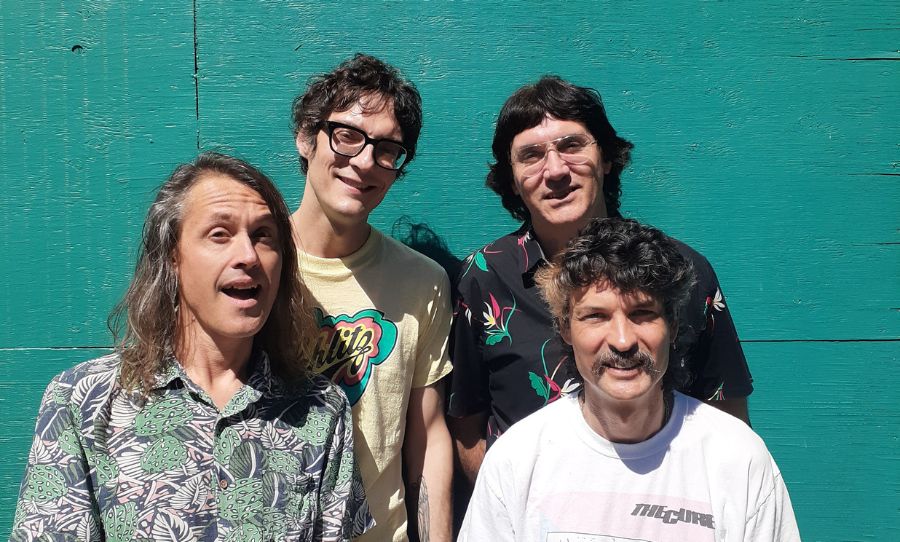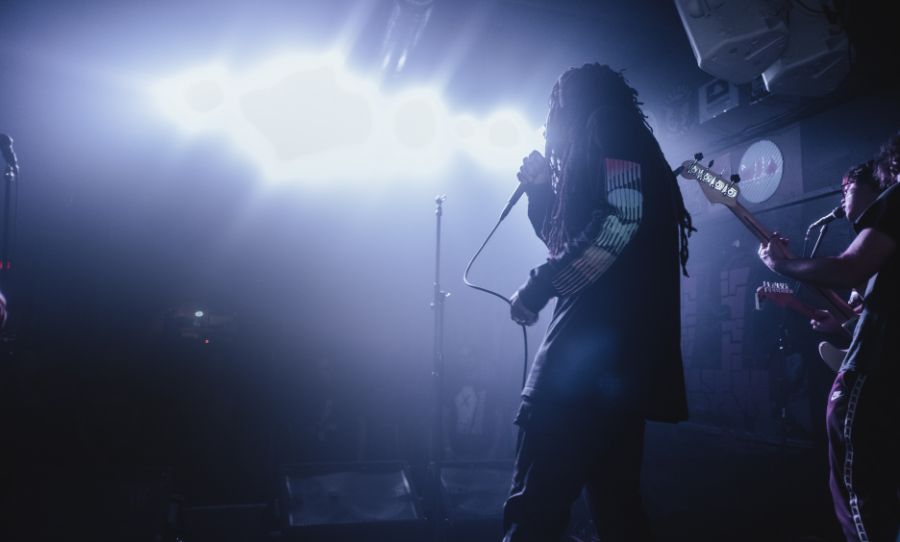Canadian cult rock group Destroyer have just put out their 13th album, Have We Met. Fronted by Dan Bejar (also of New Pornographers), and produced by bandmember John Collins, the album breathes proof into the band’s reputation for constant evolution.
This time drawing from a palette of 1980s New Pop/New Wave influences, Have We Met serves a study in human experience. Led by Bejar’s idiosyncratic lyricism, the record finds harmony between self-reflection and absurdity.

On Have We Met, Destroyer explore a retrospective sonic landscape with jagged lyricism, once again proving the worth of a band who refuses to remain in any one place.
“I was like the laziest river, a vulture predisposed to eating off floors / No, wait, I take that back, I was more like an ocean stuck inside hospital corridors.”
This is the first line of album opener Crimson Tide, a quintessentially Bejar lyric, and a pitch-perfect signal of the deranged poeticism which is yet to unfold.
Punchy, compressed drums and bass contrast with expansive synth lines, creating a cavernous expanse within which Bejar’s voice resides, slightly otherworldly. It’s an atmosphere that’s urgent, yet full of space. An almost unnoticeable transition sees Crimson Tide slide into the slower Kinda Dark – we know we are in for a journey.
Bejar’s nasal voice, slightly jarring at first, a few songs in feels somehow comforting – as though it belongs to some kind of night watchman, guiding you through strange, surreal scenes. And this truly is the best way of listening to Have We Met, sitting back, allowing it to wash over you, letting it take you on a pilgrimage through subterranean landscapes.
Bejar’s Bukowski-esque lyricism allows for endless re-listening – fresh ears finding something new every time. There’s a playfulness to the music – perhaps a kind of self-deprecation – enjoying that tension between the ambient, dreamy backdrop and the gritty use of language, like the casual inclusion of “shithead” in The Television Music Supervisor.
Bejar once told The Guardian, “It’s embarrassing to make rock music in your 40s,” but to his credit, it seems he comfortably finds a sonic identity that feels neither overcompensatory nor irrelevant. Cue Synthesiser exudes confidence. Despite being a track whose production allegedly terrified Bejar (“A world of industrial funk-pop with duelling cyber-blues guitars”) it is one of the standouts on the album.
It seems he thrives in a state of tension, which comes as no surprise.
The album’s title track is instrumental and lonely. This sombre note is continued right through to foolssong, a song which feels perhaps the most resigned and accepting, a moment of relieving closure. This lasts until the very final moments where a sudden cacophony of dissonant notes leaves you eerily unsettled – surely a parting gift from Bejar. Don’t get too comfortable, it screams.
Have We Met is a journey, one you won’t regret taking.
Have We Met is out now.



